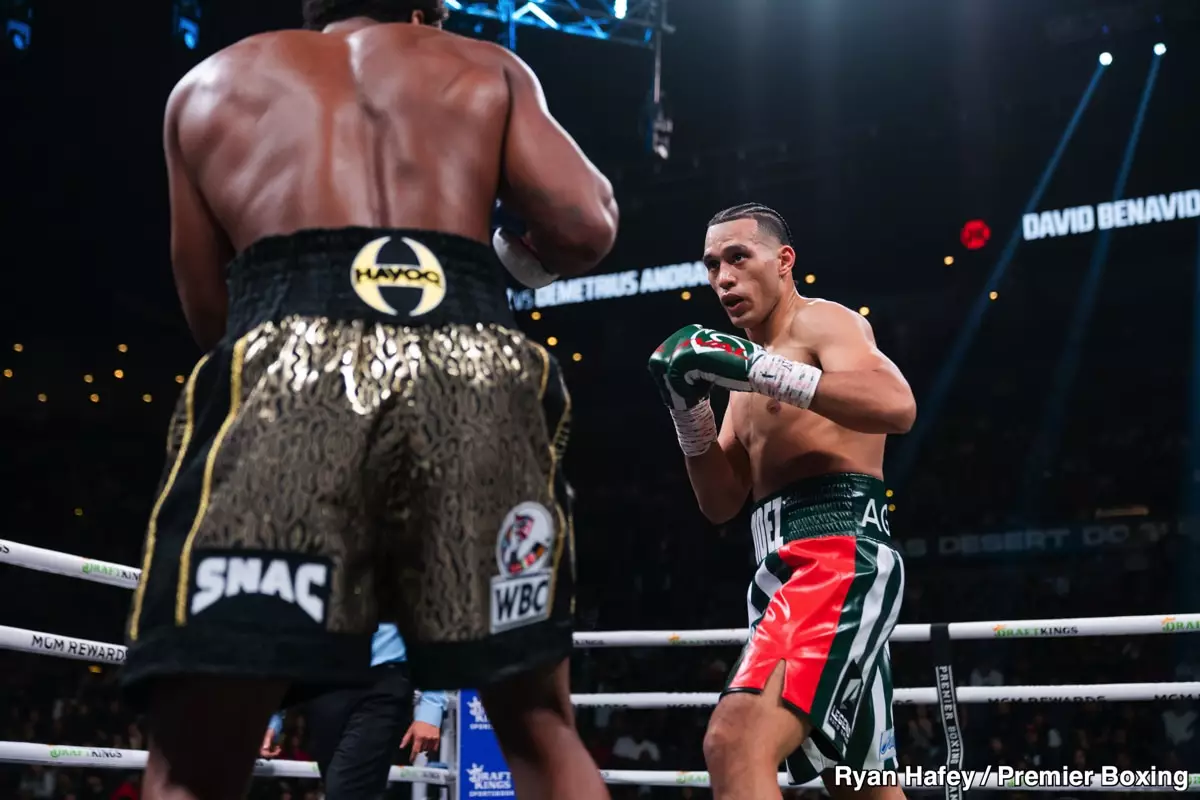In the world of boxing, rivalries and personal stakes often interweave to elevate the anticipation for a potential bout. David Benavidez, a name that resonates strongly within the super middleweight division, has recently indicated his willingness to step into the ring against Terence Crawford. This isn’t merely about titles or records; it’s rooted in a quest for redemption for Benavidez’ brother, Jose Benavidez Jr, who suffered a loss against Crawford six years ago. This kind of narrative pulls on the emotional strings of both fighters and their fans, adding dimensions to their rivalry that go beyond statistics and skillsets.
Crawford’s ambitions, however, are seemingly pointed at a different target—Saul “Canelo” Alvarez. The decorated four-division champion has repeatedly expressed his desire to challenge Canelo, even going so far as to involve influential figures like Turki Alalshikh to facilitate that fight. Yet, despite these efforts, the reality is that Crawford has faced hurdles in arranging this high-profile match-up, highlighting an underlying issue in his current career trajectory. Rather than exploring the competitive landscape of the super middleweight division by taking on contenders like Benavidez, Crawford appears more inclined to wait for opportunities that might not come to fruition.
What’s particularly perplexing about Crawford’s strategy is his relative reluctance to engage with fighters at 168 pounds. Critics argue that his impeccable record, bolstered by claims of elite skills, should compel him to prove his mettle against strong competitors like Benavidez, David Morrell, or Christian Mbilli prior to seeking a title shot against a powerhouse like Canelo. There’s an underlying sense of entitlement—a belief that his achievements should allow him to bypass the customary rigors of validating oneself in a new weight class. It raises questions about the sustainability of a legacy built against washed-up fighters, with Errol Spence, albeit a former champion, being the only name of significant weight on his list of victories.
The division among fans is notable. While some laud Crawford’s accomplishments during his 16-year career, asserting he should not have to ‘prove himself’ against Benavidez, others argue that his lack of fights against top-tier opponents in the current landscape diminishes his credibility. This leaves Crawford in a precarious situation—either he risks his reputation by challenging fighters like Benavidez, or he remains in limbo, possibly considering retirement if fruitful negotiations for a Canelo fight fall through.
At this junction, the boxing community is left debating whether Crawford will step up to the plate and rekindle interest or if he will cling to aspirations of mega-fights without engaging with the competition that can uphold his legacy. The anticipation surrounding a potential showdown with Benavidez incorporates both high stakes and personal narratives, but as history has shown, these match-ups often remain just that: potential. The future of boxing success for Crawford, intertwined with the ambitions of Benavidez, may very well hinge on decisions made in the coming months, showcasing the often unpredictable nature of this sport.

